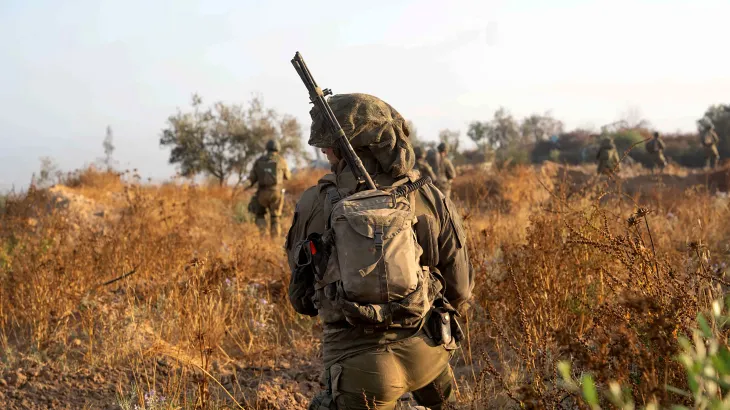
The Israeli army is urgently setting up a division of retirement-age reservists to address a critical shortage of soldiers as the conflict in Gaza intensifies. This unprecedented move underscores the severe challenges faced by the Israeli military, which is grappling with escalating violence on multiple fronts.
The need for additional manpower has become increasingly acute as Israeli forces continue their operations in Gaza. In the past 24 hours alone, dozens of Palestinians have been killed in Israeli attacks on central and southern Gaza, including five children. These attacks are part of a broader military campaign that has seen relentless bombardment and ground operations since October 7. The conflict has led to a staggering humanitarian crisis, with 37,337 Palestinians killed and 85,299 injured. In Israel, the death toll stands at 1,139, with dozens of people still held captive in Gaza.
Adding to the complexity of the situation, the Israeli military has warned of the potential for a wider conflagration due to cross-border tensions with Hezbollah. The volatile border with Lebanon remains a flashpoint, with the possibility of the conflict spreading beyond Gaza posing a significant threat. The Israeli government is also considering imposing sanctions on the Palestinian Authority (PA) and countries that recognize Palestine, further complicating the geopolitical landscape.
The urgency of the situation was underscored by the recent death of an Israeli soldier in southern Gaza. The soldier was killed when a booby-trapped building exploded, just a day after ten other soldiers lost their lives in various attacks. These casualties highlight the perilous conditions faced by Israeli troops on the ground and the high cost of the ongoing conflict.
In response to the dire need for additional forces, the Israeli army has decided to mobilize reservists who are of retirement age. This decision reflects the unprecedented nature of the current conflict and the extreme measures being taken to ensure that the military can sustain its operations. The creation of a division comprising older reservists is a stopgap measure aimed at bolstering the ranks of the army, which is stretched thin by the demands of the ongoing war.
The humanitarian impact of the conflict is devastating, with Gaza's civilian population bearing the brunt of the violence. The recent killings of children in the bombings have sparked international outrage and calls for a ceasefire. However, the prospects for peace remain dim as both sides continue to escalate their military actions.
The Israeli government’s contemplation of sanctions against the PA and countries recognizing Palestine indicates a hardening stance that could further isolate the Palestinian territories and exacerbate the already dire conditions. The potential sanctions are seen as a means to pressure the PA and its supporters, but they also risk inflaming tensions and hindering any diplomatic efforts to resolve the conflict.
As the Israeli army grapples with its urgent need for more soldiers, the broader implications of the conflict continue to unfold. The decision to call up retirement-age reservists is a testament to the severity of the situation and the lengths to which Israel is prepared to go to sustain its military campaign. With no end in sight, the toll of the conflict on both Israelis and Palestinians is likely to continue growing, demanding urgent attention from the international community.

















